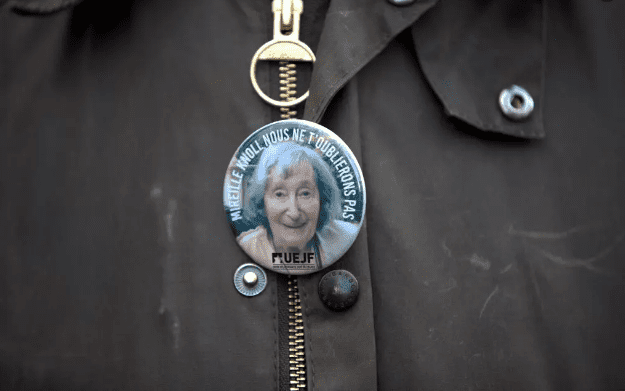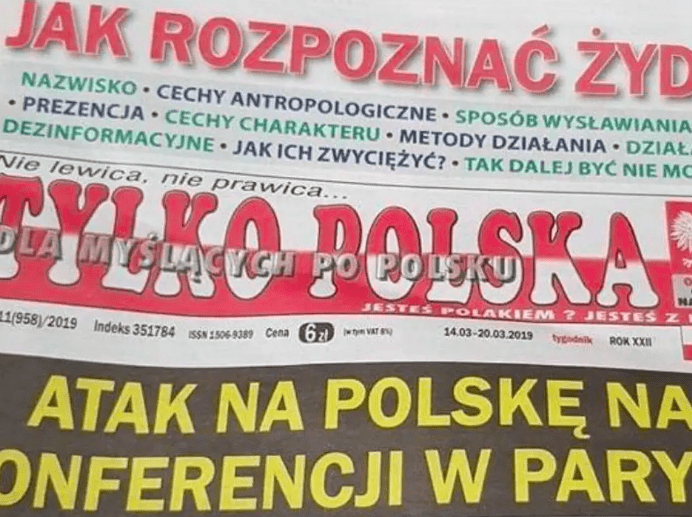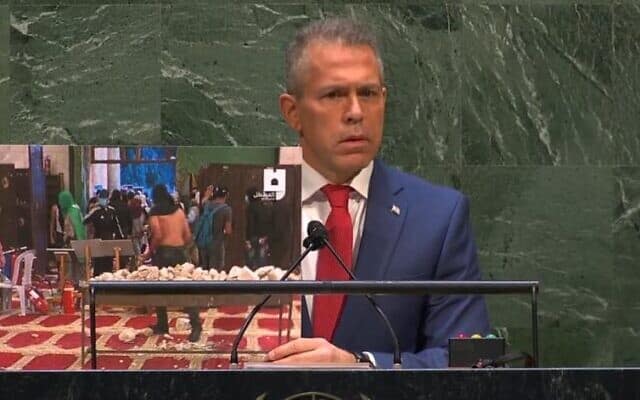It’s no rare thing for the Israeli prime minister to enrage the Jews of the diaspora. But three years ago, Benjamin Netanyahu delivered a speech that won him near-universal condemnation.
In the aftermath of several deadly attacks in European cities like Paris and Copenhagen, Mr. Netanyahu called on Jews to leave Europe. “Of course, Jews deserve protection in every country. But we say to Jews, to our brothers and sisters: Israel is your home,” he said, echoing comments he had made more subtly the month before at Paris’s Grand Synagogue.
Mr. Netanyahu’s suggestion of “mass immigration” was “unacceptable,” said Rabbi Menachem Margolin, the head of the European Jewish Association. Abraham Foxman, then head of the Anti-Defamation League, suggested such a policy would “grant Hitler a posthumous victory.” Denmark’s chief rabbi, Jair Melchior, said he was “disappointed.” Smadar Bar-Akiva, the executive director of JCC Global, said “the calls for French Jews to pack their bags” and move were “disturbing and self-defeating.”
François Hollande, then president, echoing a chorus of European leaders, pushed back hard, appealing to his country’s Jews: “Your place is here, in your home. France is your country.”
Is it?
This is a question worth seriously asking following the barbaric murder last week of Mireille Knoll.
Ms. Knoll, 85, believed Mr. Hollande. France was her place, her home, her country. And Paris was her city.
She believed this despite the fact that it was also the city where, when she was 9 years old, the police rounded up 13,000 of the city’s Jews, 4,000 of them children, and crammed them into Vélodrome d’Hiver, a cycling stadium, before shipping them to their deaths at Auschwitz. Ms. Knoll narrowly escaped this largest French deportation of Jews during the Holocaust and fled to Portugal with her mother.
After the war, she married a man who had survived Auschwitz. She returned to her native land where she built a home and raised a family. French to her core, she stayed in Paris even as her grandchildren moved to Israel.
She remained in her apartment in the 11th arrondissement when, suffering from Parkinson’s disease, she was stabbed 11 times. Her apartment was then set on fire. Firefighters found the burned body on Friday night.
Parisian authorities are investigating the murder as being motivated by the “membership, real or supposed, of the victim of a particular religion.” But euphemisms should have no place in describing the nature of Mireille Knoll’s death. She was murdered by men apparently animated by the same hatred that drove Hitler.
Two suspects, a 29-year-old and a 21-year-old, have been arrested. The older man is a neighbor Ms. Knoll has known since he was a child. The younger, according to reports, is homeless. One of the suspects told the investigators that the other had shouted “Allahu Akbar” while killing Ms. Knoll, according to Le Monde. (A lawyer for the Knoll family, Gilles-William Goldnadel, confirmed that in a phone call.) On Tuesday, Gérard Collomb, the interior minister, told Parliament that one of the attackers had told the other: “She’s a Jew. She must have money.”
In fact, Ms. Knoll was “poor,” according to her son, Daniel. She’d lived most of her life in the same apartment in the subsidized housing project where she was killed.
It’s a neighborhood that has already borne witness to a nearly identical crime. Almost exactly a year ago, a 65-year-old Jewish widow named Sarah Halimi was murdered by her neighbor, 27-year-old Kobili Traoré. Other neighbors said they heard Mr. Traoré scream “Allahu Akbar” as he beat Ms. Halimi, a retired doctor, to near death in the early hours of April 4, 2017. He then threw her body into the courtyard below.
It took months for Ms. Halimi’s murder to be categorized as an anti-Jewish hate crime. “It was scandalous,” said Mr. Goldnadel, the lawyer, who also represented the Halimi family.
This time, French authorities have been quick to call the crime by its proper name. On Monday, President Emmanuel Macron tweeted: “I would like to express my shock at the appalling crime committed against Mrs. Knoll. I reaffirm my absolute determination to fight anti-Semitism.” On Wednesday, he said that she was murdered “because she was Jewish” at a tribute to a police officer killed in an Islamist attack. Mr. Macron has been widely praised by the country’s Jewish community for his moral clarity in describing anti-Zionism as a “reinvented form of anti-Semitism.”
Anti-Semitism was supposed to be a disease of the far right. But the people actually killing Jews in France these days are not members of the National Front. They are Islamists.
“The major crimes against the Jewish community — Ilan Halimi, the Toulouse killings, the Hyper Cacher killings, Sarah Halimi — all of them have all been carried out by radicalized Muslims,” Robert Ejnes, the executive director of CRIF, an umbrella organization of French Jewish groups, told me in a call from Paris. “These young people have French identity cards, but they hate what France stands for. This is the nature of the problem we are facing. And it’s very hard to talk about.”
Here are some facts that are very hard to talk about: Jews represent less than 1 percent of the population in France, yet in 2014, 51 percent of all racist attacks were carried out against them, according to the French Interior Ministry. A survey from that year of about 1,000 French respondents with unknown religious affiliation and 575 self-identified Muslims, conducted by the AJC Paris and the French think tank Fondapol, found that the Muslim respondents were two or three times more likely to have anti-Jewish sentiments than those from the random French group. Nineteen percent of all respondents felt that Jews had “too much” political power. Among Muslims, the number was 51 percent. As for the idea that Zionism “is an international organization that aims to influence the world and society in favor of the Jews,” 44 percent of Muslims surveyed approved of this statement. The rest of the survey is just as devastating.
For years now, France has deployed armed troops to protect Jewish synagogues and schools. But the violence on the streets — a 15-year-old girl wearing the uniform of her Jewish school slashed in the face; an 8-year-old boy wearing a kippah assaulted; teenage siblings called “dirty Jews” before being beaten — hasn’t abated. On Wednesday, hours before a march in honor of Mireille Knoll, the office of the Union of French Jewish Students at the Sorbonne was ransacked and defaced with graffiti like “Viva Arafat” and “death to Israel.”
Whatever else the investigation of Ms. Knoll’s murder might reveal, this much we know for certain: The men who are accused of killing her were living in a culture in which Jews are reviled on the far right and, increasingly, on the far left; in which sensitivity toward cultural differences have driven too many for too long to ignore the spread of an ancient hatred in a vicious new form; in which attacks on Jews have been explained away as politically motivated by events in the Middle East. In such a culture, it shouldn’t come as a surprise that some would come to the conclusion that Jewish blood is cheap.
In the wake of Ms. Knoll’s murder, all of the usual lines are being repeated. Anti-Semitism is the hatred that never dies. Violence that begins with the Jews never ends with them.
All of this is true. What’s also true is that anti-Semitism is the oldest hatred in the world because individual people have sustained it in every generation. It cannot be defeated until we look these people and their ideologies in the face.
Every French Jew — like millions of Jews throughout history — will have to make their own choice about whether to leave their homes for safer shores or to stay and fight for their rightful place in a country that prides itself on being a beacon of liberty and fraternity. But perhaps the better part of wisdom is with one of Mireille Knoll’s granddaughters, Noa Goldfarb. Following her grandmother’s murder, she wrote in a Facebook post from Israel: “Twenty years ago, I left Paris knowing that neither my future nor that of the Jewish People is to be found there.”
The article was published on The New York Times
















